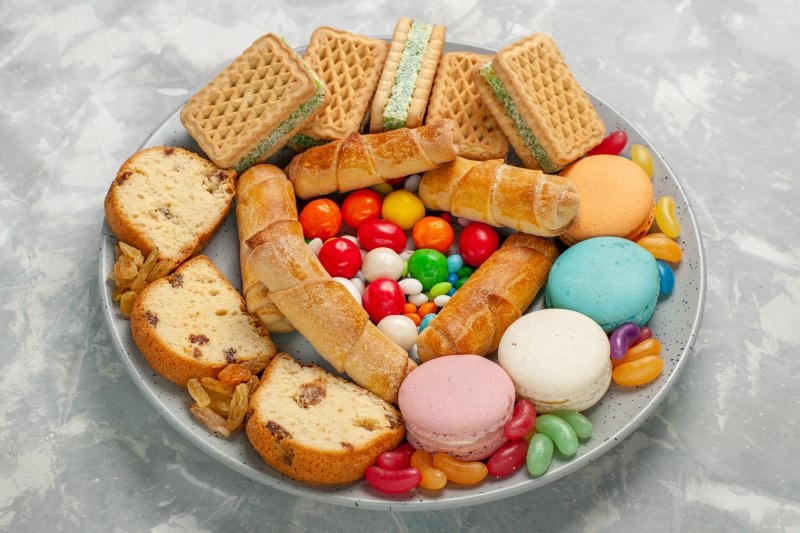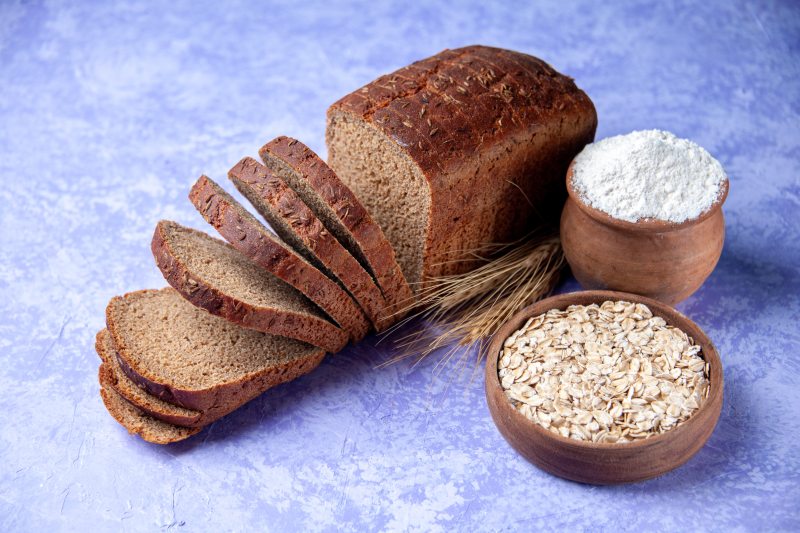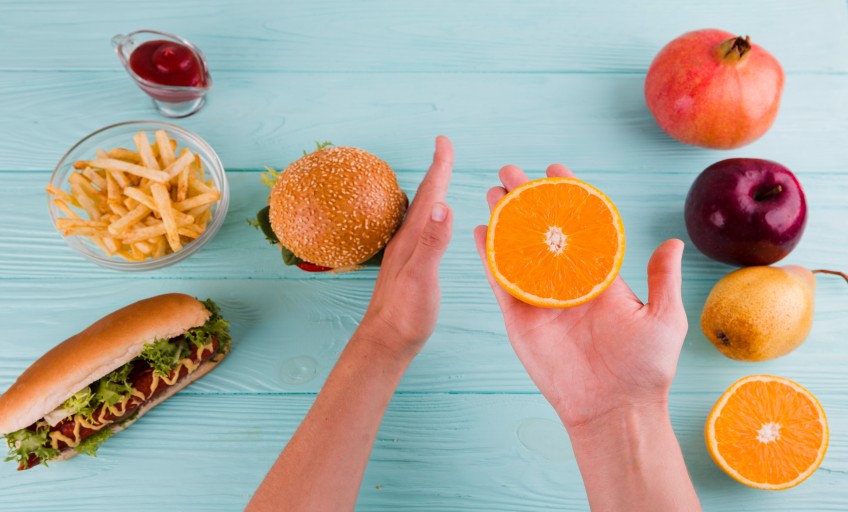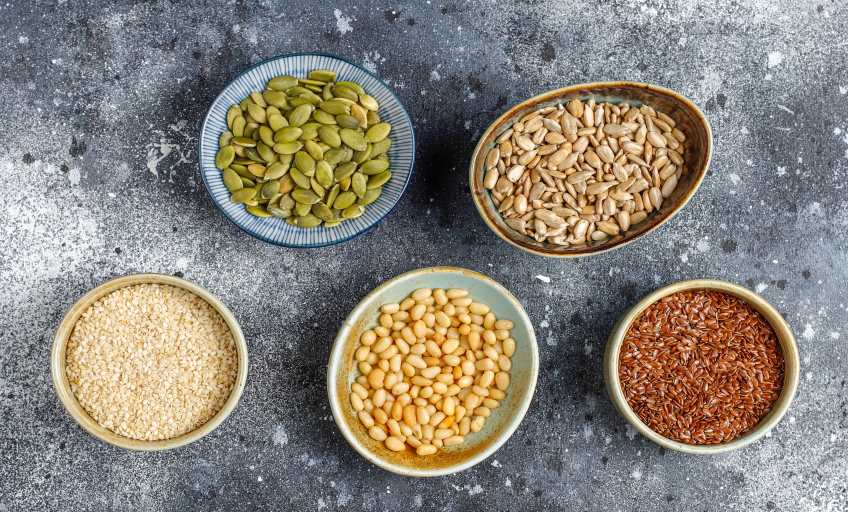Key Takeaways
- Ultra-processed foods are significantly altered from their original form and are often high in calories, sugar, salt, and unhealthy fats.
- Some examples are ice cream, ham, sausages, crisps, mass-produced bread, breakfast cereals, and biscuits.
- Also, cereal and bread are considered ultra-processed.
- Consuming less ultra-processed foods benefits your health.
You may have encountered a new term doing the rounds in the nutrition category: ‘ultra-processed foods’. Recent research links it with risks that adversely impact health.
What you need to know:
- What are ultra-processed foods?
- List of common ultra-processed foods
- Why is ultra-processed food bad for you?
- Are cereal and bread counted as ultra-processed foods?
- Should you avoid consuming ultra-processed foods?
- Tips to avoid ultra-processed foods
- Limit ultra-processed foods
What are ultra-processed foods?
Ultra-processed foods, defined as industrial formulations with five or more ingredients, typically have more than one ingredient you never or rarely find in a kitchen. They may also include many additives typically not used in home cooking, such as preservatives, sweeteners, artificial colours and flavours. These foods generally have a long shelf life.
List of common ultra-processed foods

Examples of ultra-processed foods include:
- Ice cream
- Ham
- Sausages
- Crisps
- Mass-produced bread
- Breakfast cereals
- Biscuits
- Carbonated drinks
- Fruit-flavored yogurts
- Instant soups
- Some alcoholic drinks, including whisky, gin, and rum.
Why is ultra-processed food bad for you?
Ultra-processed foods often contain high levels of saturated fat, salt, and sugar, leaving less room for more nutritious foods. The additives in these foods could be responsible for adverse health effects. The actual processing of the food also makes a difference in how our bodies respond to it. Studies have shown, for example, that when foods such as nuts are eaten whole, the body absorbs less fat than when the nut is ground down, and the oils are released. Diets higher in ultra-processed foods could also affect our gut health. However, more research is needed to separate these different elements and understand precisely what ultra-processed foods could harm our health. However, cutting down is sensible given that most of these foods have high salt, sugar, and saturated fat content.
Are cereal and bread counted as ultra-processed foods?

Everyday items such as breakfast cereals and mass-produced or packaged bread can be considered ultra-processed foods. These foods often contain extra ingredients added during production, such as emulsifiers (a substance that helps mix two liquids that usually do not mix), sweeteners, and artificial colours and flavors.
Should you avoid consuming ultra-processed foods?
Ideally, we should go back to eating only minimally processed foods, but with restricted time and budget, this may not be an option for most of us. Although the evidence suggesting that ultra-processed foods are bad for our hearts and circulation is growing, it is still unclear if we need to exclude them entirely. However, because of the limitations of the available research, caution is still required when making dietary recommendations. Instead of completely cutting out these foods, have them balance out your diet.
- Ensure you eat minimally processed foods.
- Add fruit and vegetables to your meals, drink water instead of sugary drinks, and try to make more time for home cooking.
- When you include ultra-processed foods in your diet, choose those with more nutritional benefits – wholegrain bread and cereals or baked beans, for example, instead of crisps, sweets or pizzas.
- Get in the habit of reading food labels to quickly identify and cut back on foods high in sugar, salt, or saturated fat.
Tips to avoid ultra-processed foods
Eating many processed foods leaves less room for healthier foods like fruits and vegetables, fish, unsaturated oils, pulses, nuts and seeds. So, if you want to change your diet, make some swaps, such as the following:
- Instead of flavored yogurts with added sugar or sweeteners, choose plain ones and add chopped fresh, frozen or dried fruit for sweetness.
- Instead of buying sauces or ready meals, cook your favorites in larger amounts at home and freeze the extra portions for another day.
- Have porridge in the morning with fruit and nuts instead of sugary low-fiber breakfast cereals.
- Eat fresh, baked or stewed fruit instead of shop-bought fruit pies or cakes.
- Have some nuts instead of biscuits with your afternoon tea or coffee.
Limit ultra-processed foods
The widespread consumption of ultra-processed foods poses significant challenges to overall health. These foods often contain excess sugars, unhealthy fats, sodium, and artificial additives. They are linked to a range of adverse health conditions, such as obesity, cardiovascular disease, type 2 diabetes, and certain cancers. You can improve your health and well-being by prioritizing a balanced diet and limiting your intake.
Stay tuned to the Activ Living Community. Keep up to date with the latest health tips and trends through expert videos, podcasts, articles, and much more on nutrition, fitness, mindfulness, and lifestyle conditions like Asthma, Blood Pressure, Cholesterol, and Diabetes. Activ Living ke saath sahi sehat ki shuruat ABHI karo.
You may also be interested in the following blogs:
- Harmful Effects Of Processed Food: Impact On Health
- Which 7 Ways Can Help You Reduce Your Intake Of Processed Foods?
Popular Searches
How to lower blood pressure | Fruits good for liver | Unhealthy foods | Ragi Benefits | Basal Metabolic Rate | Acupressure points for High Blood Pressure | Ayurvedic medicine for blood pressure | How to control cholesterol at home | Homeopathy for Asthma | Biological Age | Home remedies for TB | Natural beta blockers | Negative effects of internet | Types of walking | Blood pressure calculator | Blood sugar calculator | BMI Calculator





 1800-270-7000
1800-270-7000






